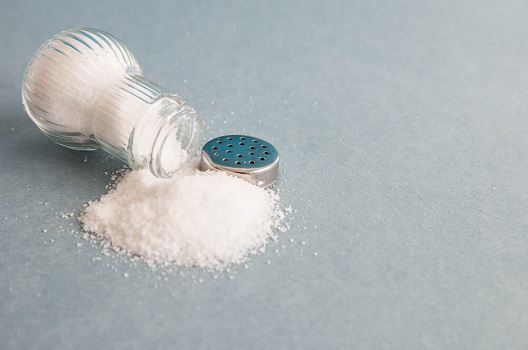Thousands of years ago, people hunted and gathered and ate a diet that we now call paleo, which included lots of lean meats, fish, fruits and veggies, nuts and seeds. Salt was scarce, but people got enough in their diets from the animal products they ate—and the human body is designed to hold onto salt for dear life.
Why is salt important?
Tables salt is made up of two electrolytes, which give it its name: sodium chloride. Electrolytes play several roles in the body that are critical to a number of systems and processes. In addition to acting like a battery, powering electrical signals from our brain to our muscles, electrolytes are needed for:
- Keeping bodily fluids in balance
- Proper brain and nerve function
- Maintaining bone health
- Muscle contractions
- Regulating blood pressure
- Energy production
Sodium in the modern diet
Unfortunately, the diets of most people in the Western world contain way, way too much sodium (and often not enough of other electrolytes, particularly potassium). In fact, many of us grab those little packets of salt at drive-thru windows and sprinkle them onto a meal that already contains double the maximum recommended amount of sodium for an entire day. This throws off the delicate balance in our bodies and leads to high blood pressure, which in turn can cause medical conditions like:
- Heart disease
- Heart attack
- Stroke
- Pulmonary embolism (blood clots in the lungs)
- Fluid buildup related to heart failure, kidney disease or cirrhosis
For some salt-sensitive people, a sodium-packed meal can also cause migraine, dehydration, headache and bloating.
How much is too much?
The American Heart Association recommends a maximum of 2,300mg of sodium daily, and ideally, less than 1,500mg. To put that in perspective, the average American eats more like 3,500mg daily, most of which comes from restaurant food and packaged and/or processed foods. Even small changes to your diet can made a big difference in your health, so look for ways to reduce your sodium intake while eating more fresh foods.




